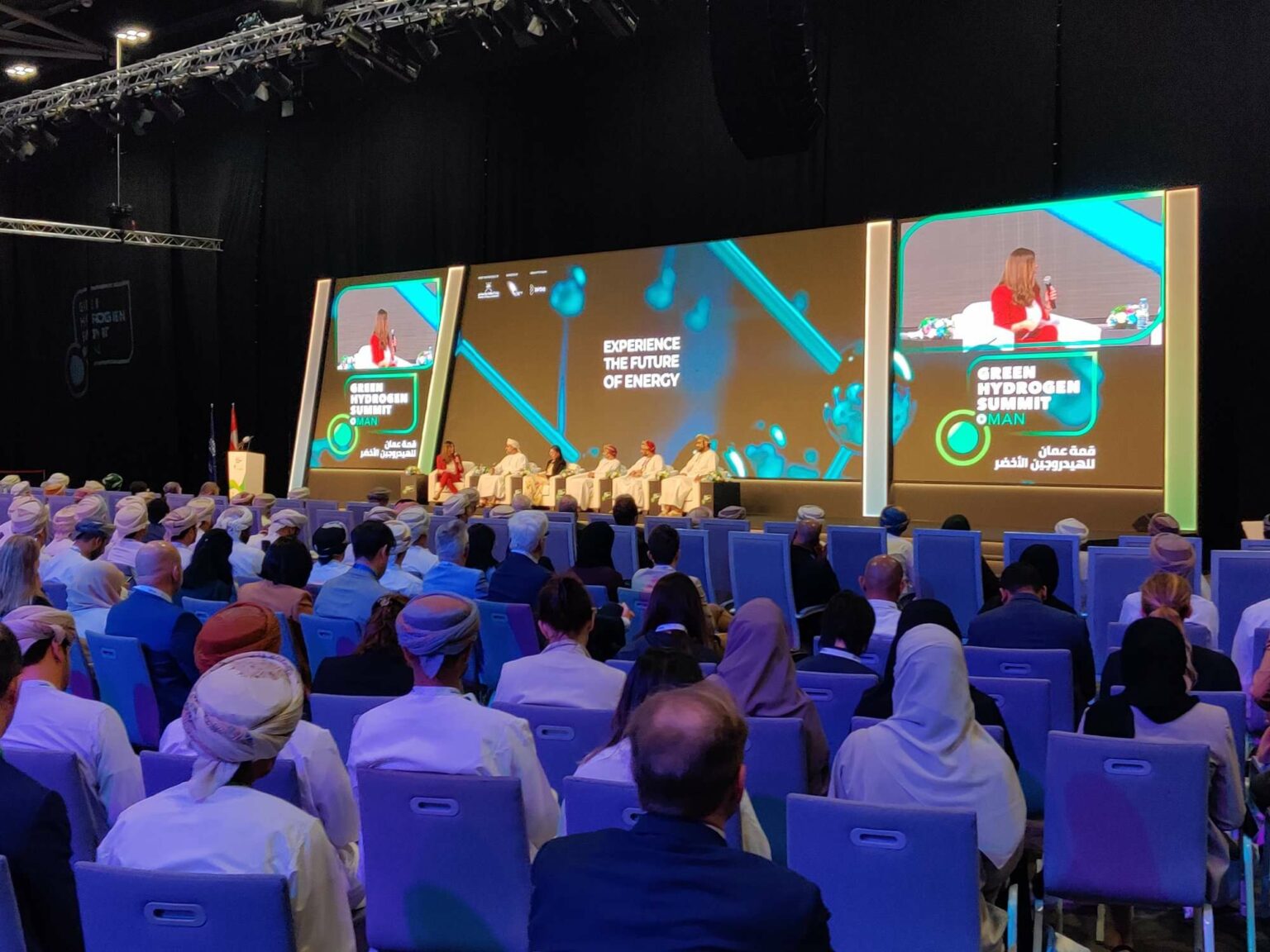Oman is poised to become the hydrogen hub of the Gulf, marking a significant stride towards sustainable energy.
The Sultanate’s commitment to hydrogen is evident through strategic initiatives, signings, and collaborations that are translating plans into tangible actions, fostering progress and garnering support for hydrogen projects within the nation.
The Global Hydrogen Symposium and Opportunities (GHSO) 2023, the largest Green Hydrogen event in the MENA region, became the stage for unveiling Oman’s ambitious hydrogen endeavors. Dr. Firas Al Abduwani, Director General of Renewable Energy and Hydrogen at the Ministry of Energy and Minerals, during the event, outlined the meticulous process of assembling a dedicated team and securing vast land expanses, including 65,000 square kilometers, rich in wind and solar potential. These initiatives aim to lay the foundation for a robust renewable energy ecosystem.
Oman’s commitment extends beyond national boundaries, evident in collaborative efforts like the liquefied hydrogen corridor between the U.S. and Canada. This exemplifies Oman’s role in global energy markets and its commitment to exploring diverse energy carriers.
Capacity Building and Contractual Commitments
Hydrom’s Abdulaziz Al Shidhani emphasized Oman’s evolving role, moving from running auctions to managing quantities. With six contracts in place, Oman is committed to fulfilling contractual obligations and supporting the transition to a final investment decision by 2026.
Najla Al Jamali from OQ provided insights into the phased approach of hydrogen projects, encompassing electrolysis and hydrogen production. The country is gearing up for a circa 20 billion investment towards these projects, expecting feed to commence in the coming year.
Oman acknowledges potential supply chain constraints, especially concerning solar panels and wind turbines. Initiatives like the Green Hydro Advisory Board and agreements with global players like Siemens Energy underscore the nation’s proactive approach in addressing supply chain challenges.
Abdulaziz and Najla discussed the evolving market dynamics, emphasizing the importance of off-taking mechanisms, international interest from Europe and Asia, and the role of legislative frameworks. Factors such as carbon taxes, incentive mechanisms, and the willingness to pay for green premium products play a pivotal role in shaping the hydrogen market.
Oman’s vision extends beyond hydrogen, exploring derivatives like e-methanol, sustainable aviation fuel (SAF), and green fuel bunkering. Small-scale pilot initiatives, such as the collaboration with EFSEAD, reflect Oman’s commitment to testing and diversifying its renewable energy portfolio.
